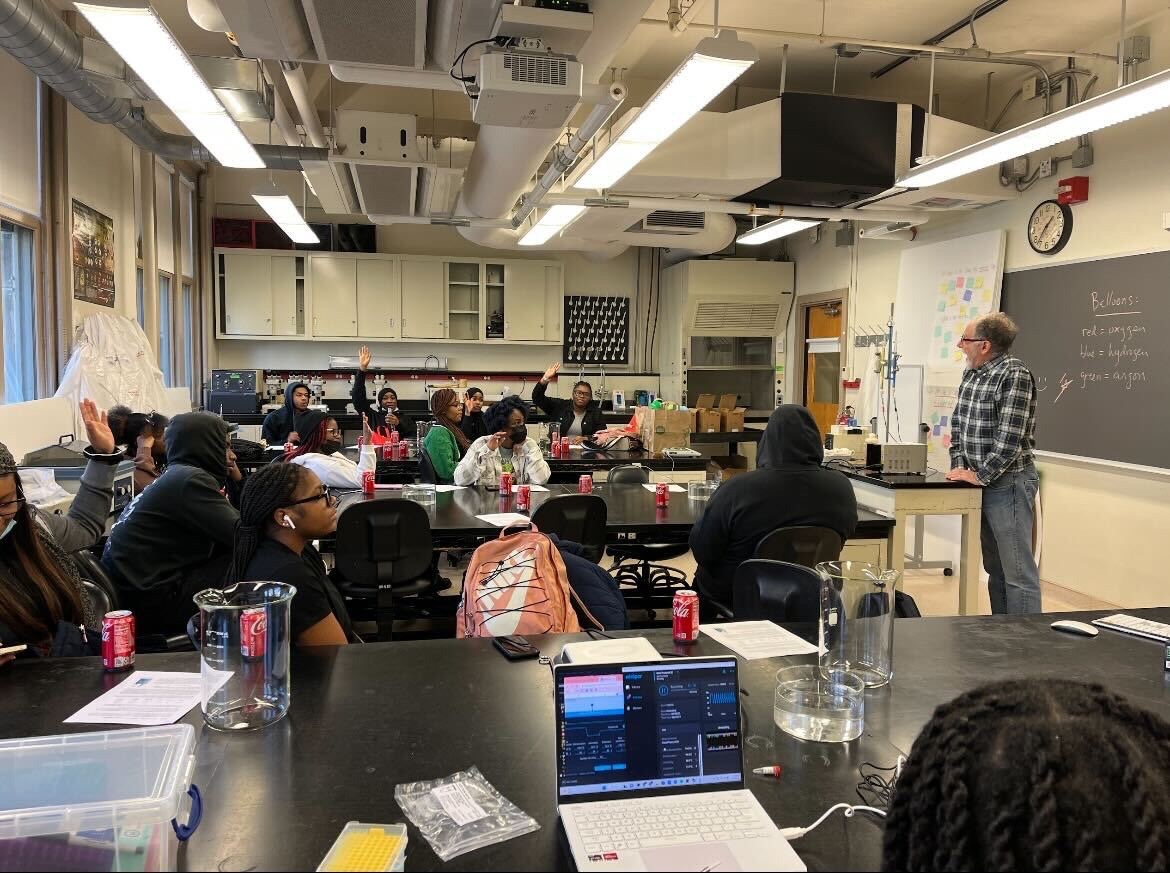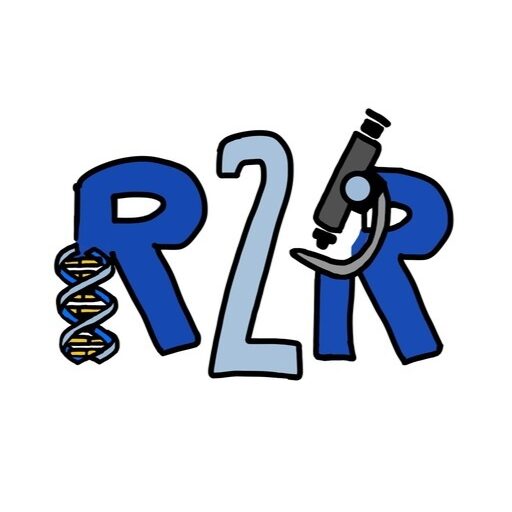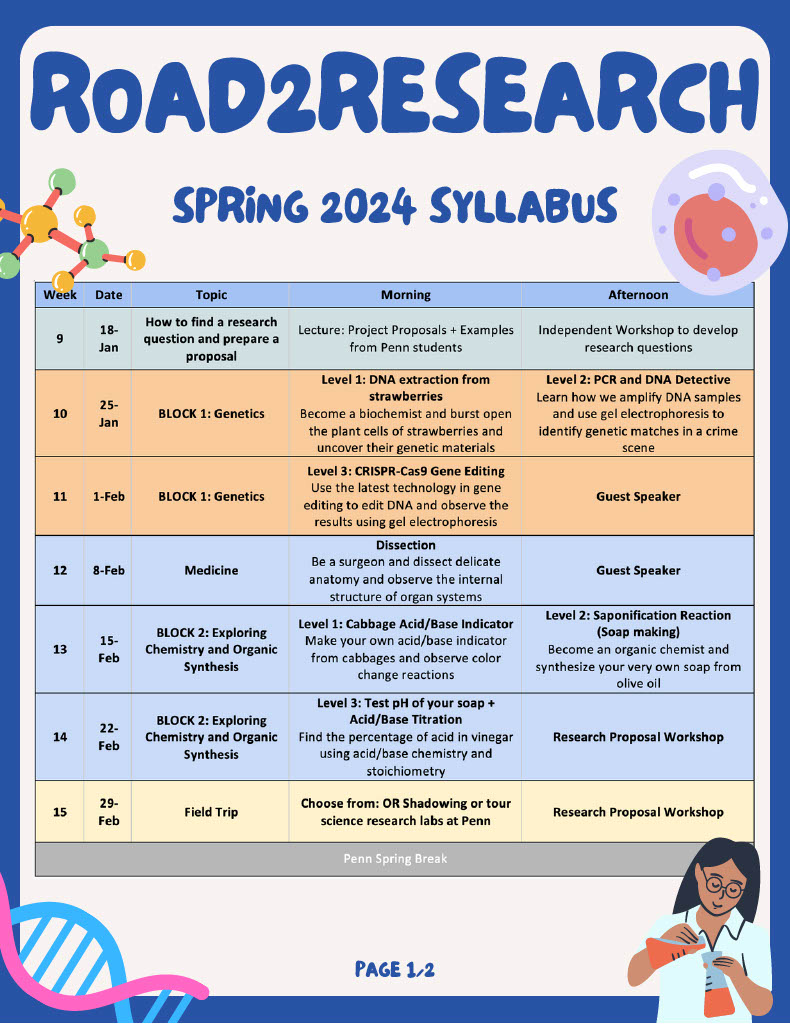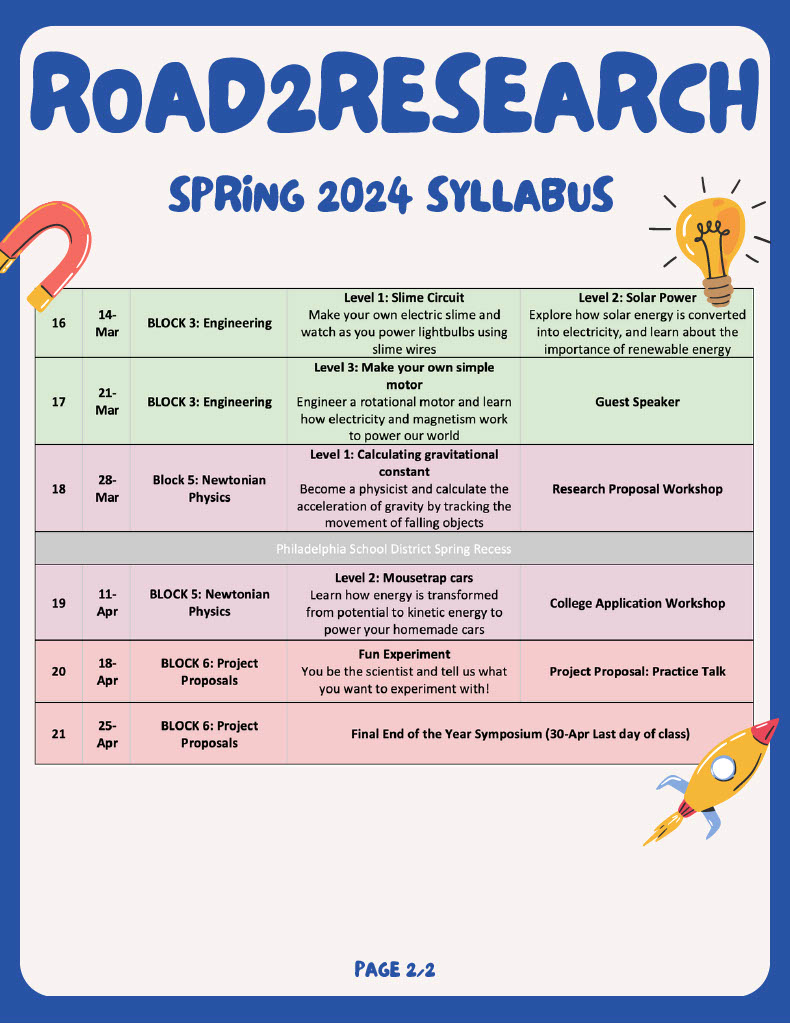Our Curriculum’s Philosophy: Problem-Based Learning
Our program seeks to address two debilitating problems in Philadelphia: 1) science education inequity in local schools created by a lack of resources, and 2) deeply rooted mistrust of science among the local population, driven by past hurtful relationships between Penn and the community.
First, R2R addresses the lack of resources by welcoming students to participate in state-of-the-art, hands-on lab workshops. Once a week, students come to our in-house lab space at Leidy Laboratories, where they are empowered to set up their own experiments and validate their experimental design. For example, instead of lecturing to students about acid-base chemistry, we encourage them to experimentally test different acids and bases. By mixing the two, they can visualize the amount of carbon dioxide produced by the inflation of an attached balloon, which measures the strength of the neutralization reaction. We firmly believe that students learn best through doing hands-on lab activities and not solely through intensive lectures.
Second, we seek to combat the deeply rooted injustice by empowering students in two ways. First, we incorporate students’ unique perspectives into a historically exclusionary field by tailoring program lessons to their interests. We also foster conversations about ethics in research to prevent future transgressions. Finally, we hold mentor trainings to ensure we practice anti-racism in our classrooms. By ensuring the inclusion of all voices in science, we are creating a new generation of scientists that would shape a more inclusive field.
Serving as a network connecting various parts of Penn, R2R is supported by over 40 undergraduate and graduate students. We are advised by Penn and non-Penn professors from the disciplines of bioengineering, cell and molecular biology, chemistry, biochemistry, physics, and chemistry. Lessons are led by graduate students from these various departments and supported by undergraduate student TAs. Our year-long curriculum integrates carefully designed hands-on lessons into five phases, in addition to periodic career programming.
The 5 Phases + Career Programming
Intro To Research
Phase 1: November
In our first phase, we introduce our students to the necessity of research and demonstrate its power to answer difficult questions. After introducing questions, we push students to formulate how they would answer such questions, which would be through research.
Scientific Method
Phase 2: December
In this phase, we introduce the empirical system of the scientific method and push our students to practice it by asking research questions, generating hypotheses, and building independent experimental procedures.
Building a Technical Toolkit
Phase 3: January - March
Our curriculum employs a progressive approach, where labs build on prior skills. Students start with microvolume pipetting for a water-dye task, then advance through lessons on gel electrophoresis and PCR. The culmination is a CRISPR-Cas knockout lab, where students use purified Cas protein to cut DNA and observe fragments on agarose gels.
Research Proposal
Phase 4 - February - April
After mastering skills and experimental design, students pick a topic, conduct literature reviews, and collaborate with Penn undergraduates. This mentorship fosters interdisciplinary critical thinking and exploration, encompassing diverse fields beyond novelty, such as biomedical and social sciences, engineering, etc.
End-Of-Year Symposium
Phase 5 - April
Students will showcase their proposal and their growth in a culminating end-of-year symposium. Sponsors, friends and family, the R2R community, the Penn administration, and other stakeholders will be invited.
Career Programming and Chalk-Talks
Andrew Fesnak
Associate Professor of Clinical Pathology at Perelman
Dr. Fesnak gave our students a preview of his science journey and how he found his niche at Penn. He then introduced our students to the mechanisms behind CAR-T cell therapy. Students were intrigued by how our body’s cells could be programmed to target cancer. They asked questions about the therapy’s effectiveness over time and how CAR-T cells distinguish healthy from cancerous cells.
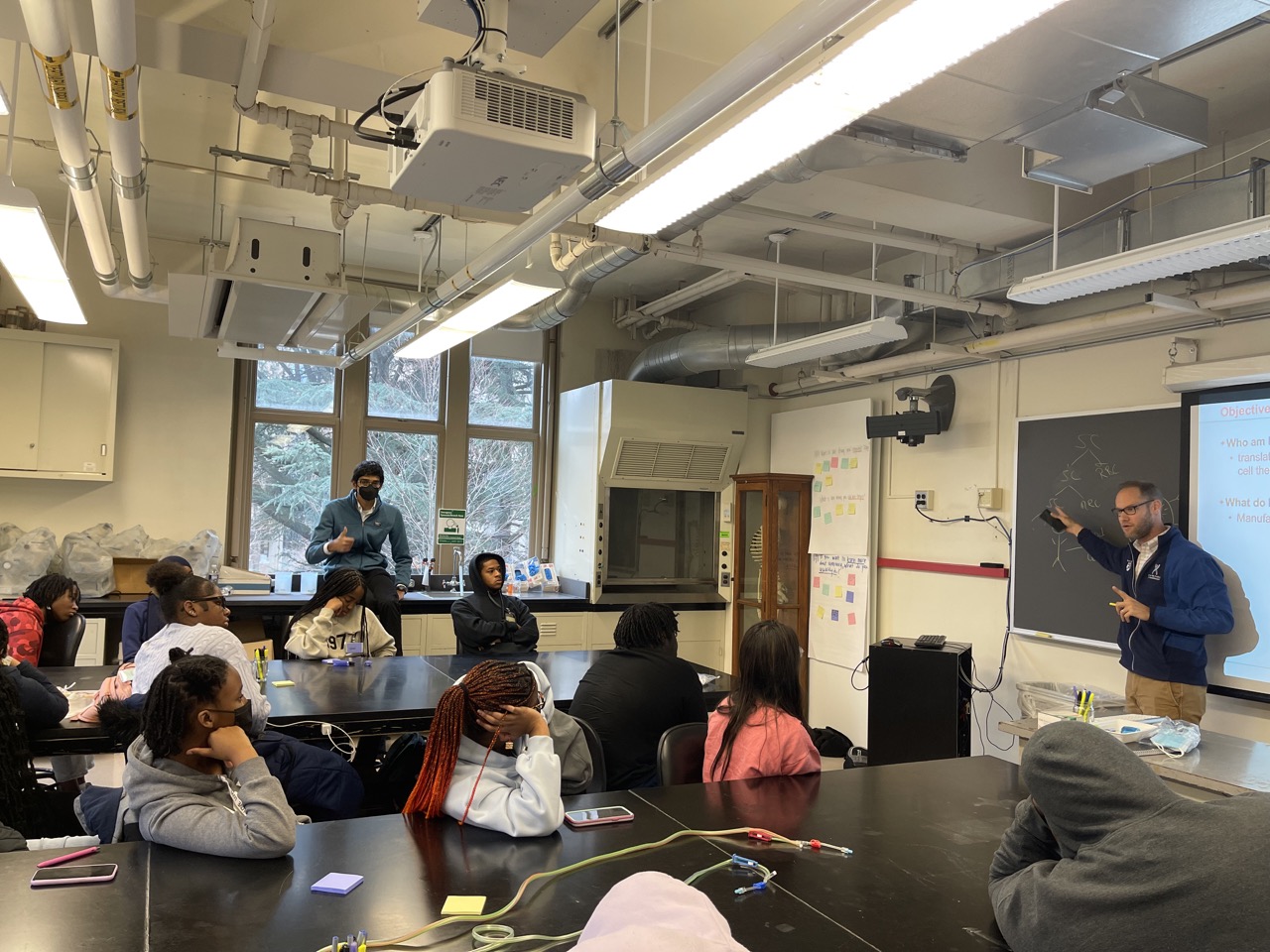
Sean Harbison
Professor of Clinical Surgery at Penn Presbyterian Hospital
Dr. Harbison offered our students a tour of Penn Presbyterian’s operation rooms, where they had the chance to witness live surgeries. Dressed in OR attire, our students were excited to meet several surgical residents and students on their trip and learned more about following a surgical career.
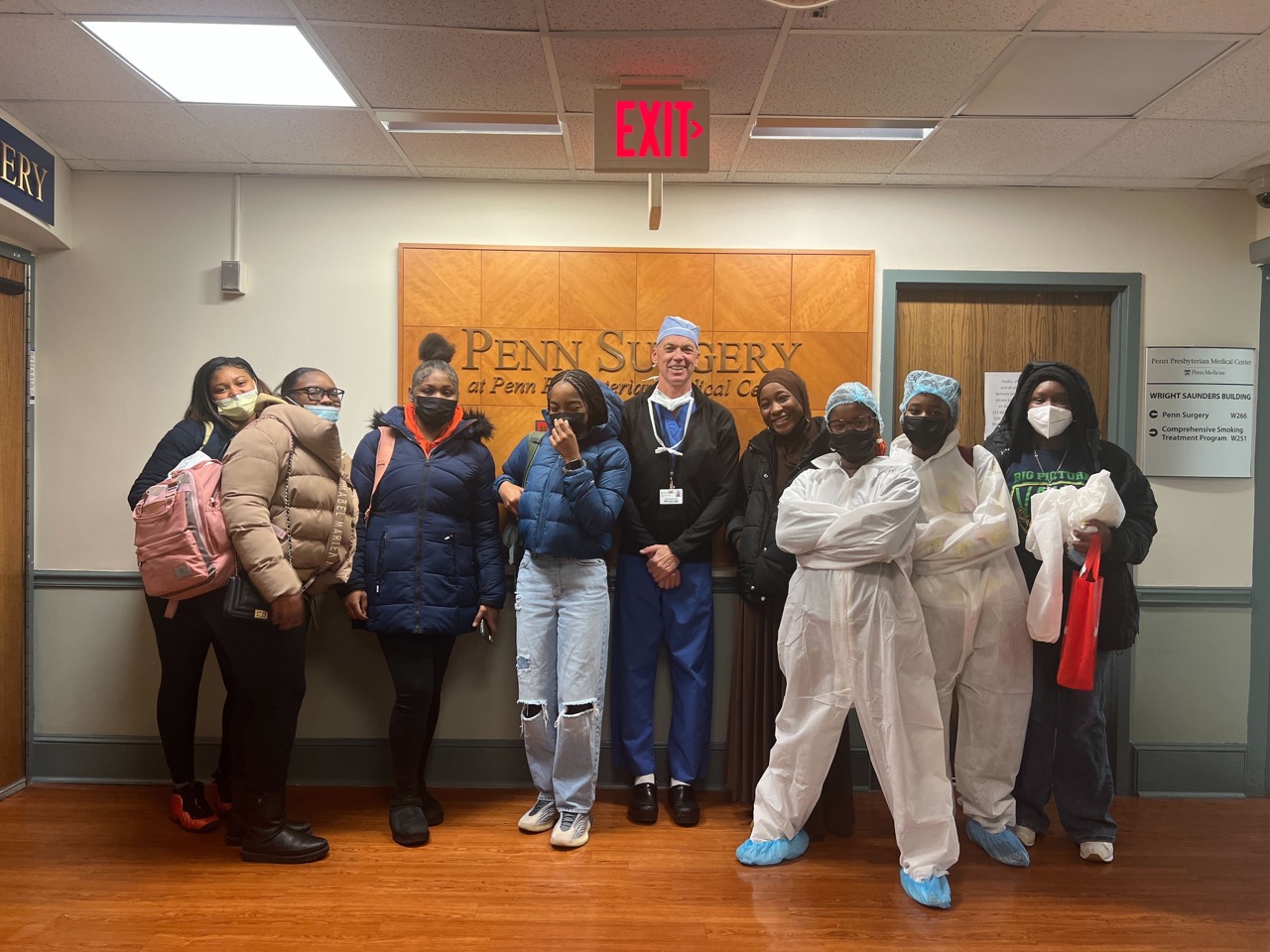
Ophir Shalem
Associate Professor of Genetics at Perelman
Dr. Shalem gave our students a glimpse of how CRISPR-Cas biotechnologies can revolutionize therapies and science. He also then lead a lab in which students had the opportunity to use purified Cas9 purified and visualize its ability to find and cut DNA on agarose gels.
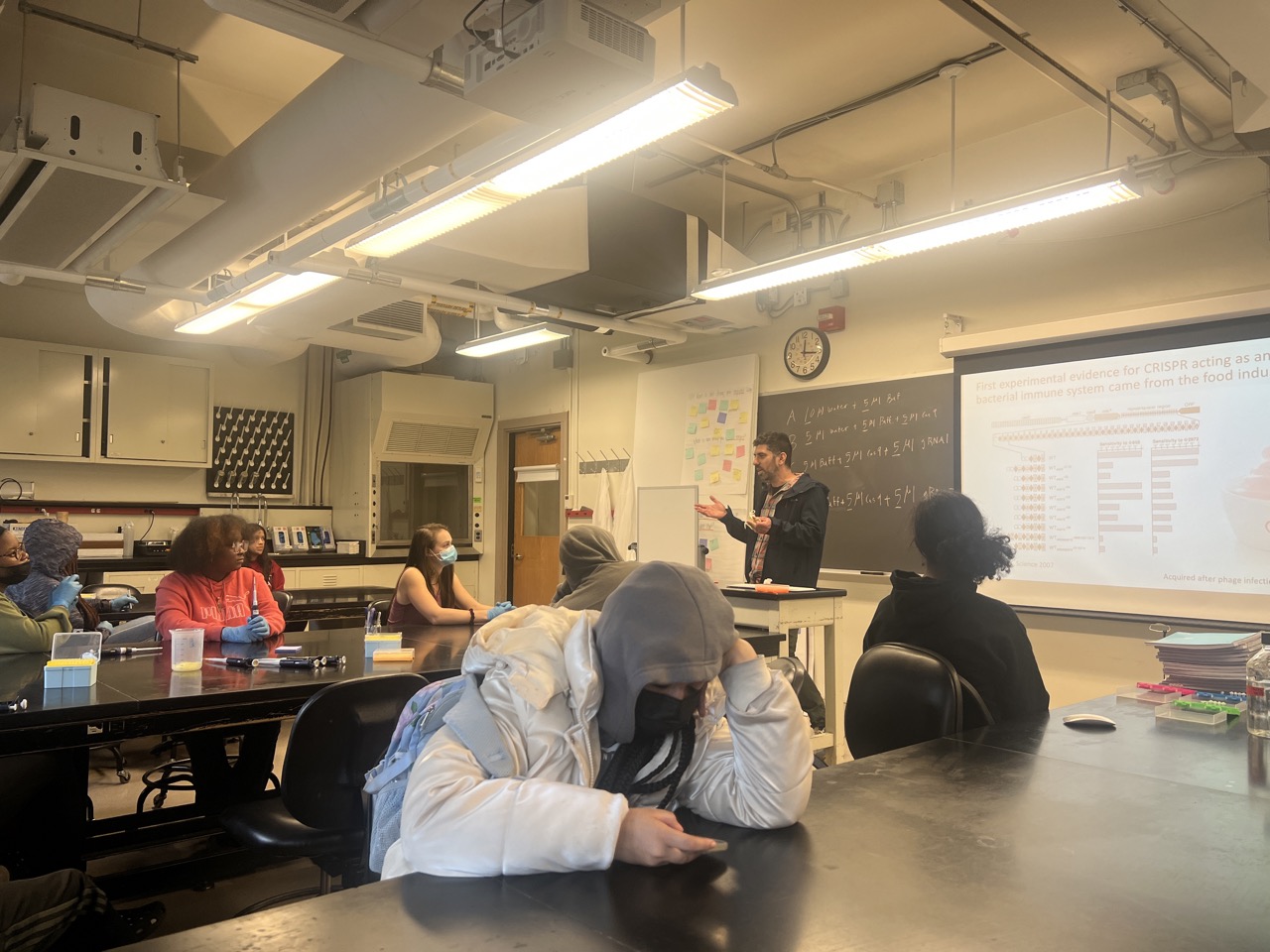
Dohyung Kim
Associate Professor of Chemical and Biomolecular Engineering at Penn
Dr. Kim’s unique perspectives, from doing research as an international student to becoming faculty at Penn, were very interesting to our students. His research on electrochemistry, combining chemistry and physics, also introduced our students to intersectional research.
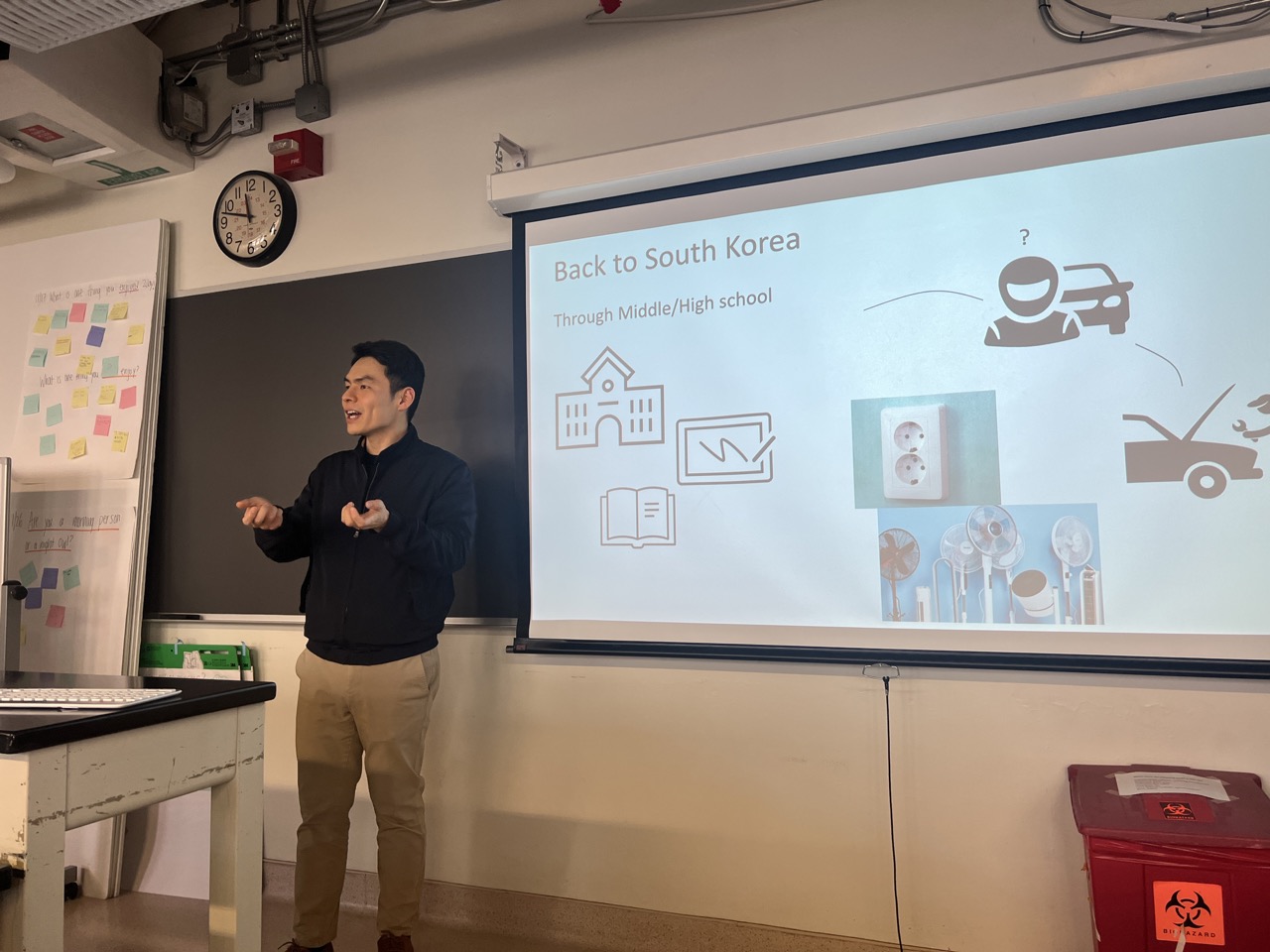
Alex Savage
Molecular Biology Undergraduate student at Penn
Hearing from a near-peer mentor, our students were very excited to hear about Alex’s interests in genetic research. Because she was closer to our students’ ages, our students were able to connect with her.
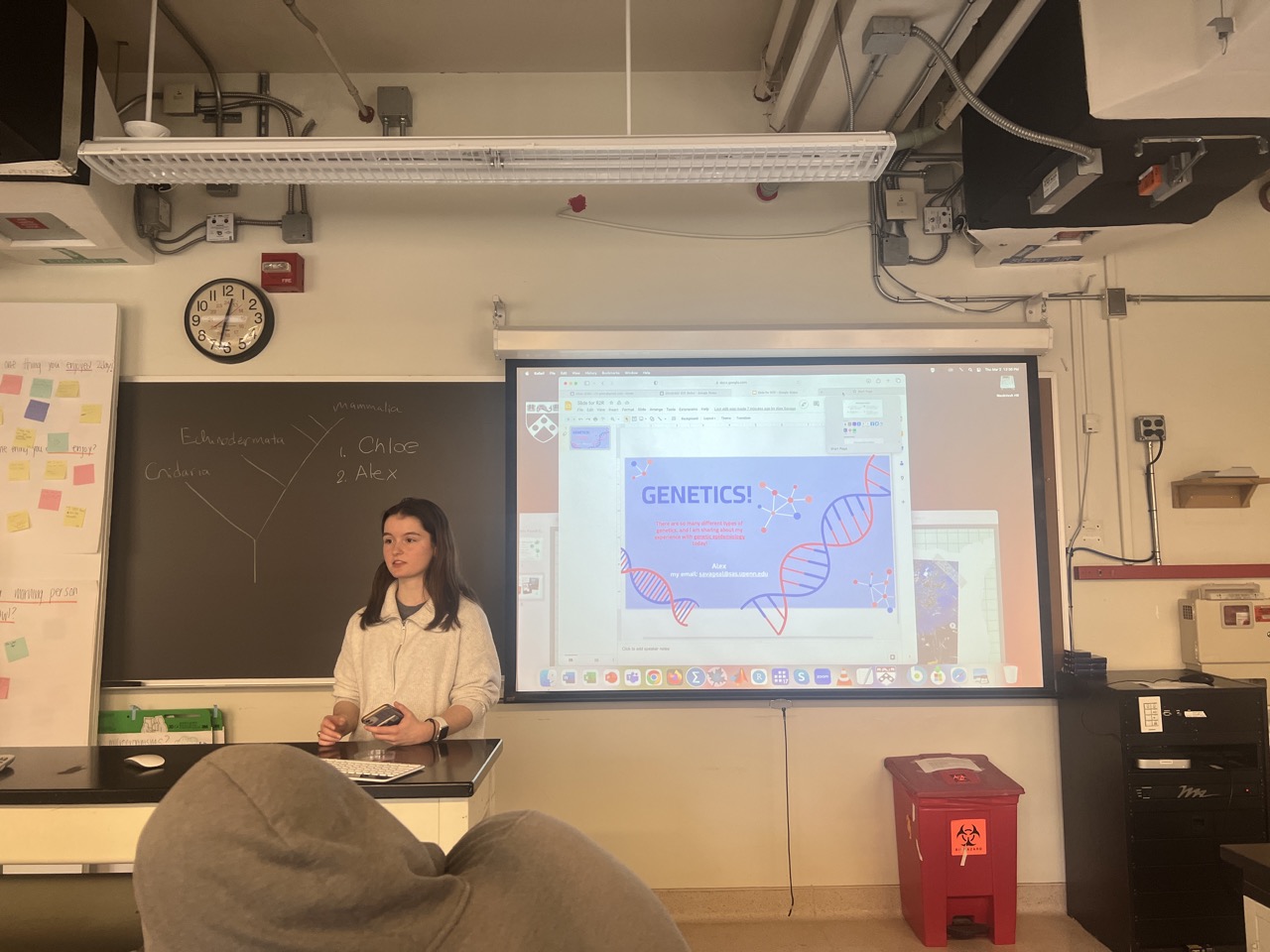
Tom Mallouk
Professor of Chemistry at Penn
Working with Dr. Mallouk, our students were able to witness the wonders of research in chemistry! From static electricity to collapsing cans, Dr. Mallouk’s hands-on activities engaged our students to the fullest.
